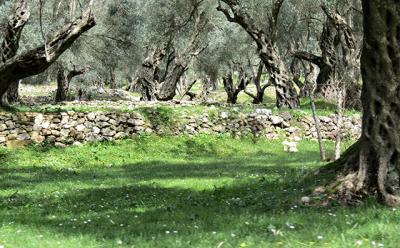An Olive Oil’s Unlikely Journey From the Balkans

To say Kosovo, a landlocked country on the Balkan Peninsula, has had a complex history is an understatement. Before the breakup of Yugoslavia during the early 1990s, Kosovo was a region of that country, populated for centuries by Serbs and Albanians. The Kosovo war of 1998-99 pitted the forces of Serbia and Montenegro against the Kosovo Liberation Army, led to the withdrawal of Yugoslav forces from the region, and, in 2008, to Kosovo’s declaration of independence.
Against this turbulent background — not to mention its subjugation over the years to the Roman, Byzantine, Bulgarian, and Ottoman empires — residents of that region, known in ancient Greece and Rome as Illyria, have been making olive oil for some 2,500 years. Indeed, Romans brought the product from Illyria to Italy.
However, not until 2013 did olive oil from the region around the small Albanian coast city of Vlore make its way to the United States through the agency of Andrew Strong and Rachael Faraone, Springs residents, and their company, Illyrian Press. How that came about involved “a wild series of events,” according to Mr. Strong, an attorney who is an associate in the Amagansett law office of Richard Whelan.
In 2005, while researching a paper on insurgency in law school, Mr. Strong chose an unusual destination for spring break — Kosovo. He managed to secure an interview with Ramush Haradinaj, the prime minister.
“He’s an ethnic Albanian and was a villager in western Kosovo,” said Mr. Strong. “His village and family were attacked and killed by Serbs. He helped form the Kosovo Liberation Army, got NATO involved, and became a national hero after the war.” The day Mr. Strong arrived in Kosovo, however, the International Criminal Tribunal for the former Yugoslavia indicted the prime minister for war crimes.
“It was a really interesting legal case. In a moment of out-of-body experience, I asked him for a job as a summer intern.” Mr. Haradinaj agreed to take on the young law student, who then dropped out of law school, spent the next two years living in Kosovo helping prepare for the trial, and then a year in The Hague working on Mr. Haradinaj’s defense.
While in Kosovo, Mr. Strong's job was to go out to the villages and piece together the narrative of the Kosovo War. “I had built this picture of the conflict in a very specific part of western Kosovo, on the border of Albania. That was where all the weapons that fueled the conflict came through. It was kind of like the Wild West.”
Mr. Strong spent much of his time in that region, learned basic Albanian, and made friends with ethnic Albanians. “We would go to Albania to check it out, and I was arrested by how beautiful it was. There were mountains covered in olive trees diving down into the Mediterranean. And the tradition of pressing olives by hand had remained unchanged for more than 2,000 years.”
The area has hundreds of olive farmers, some with only two or three trees, who bring their harvests to Vesaf Musai, now a partner with Mr. Strong and Ms. Faraone. Mr. Mesai custom presses a limited quantity of organically grown olives in his organic certified press. The oil, made from the indigenous Kalinjot olive, is bottled in Albania; Ms. Faraone designed the label.
In part because of Albania’s history of isolation, its olive oil had never been exported. The oil, which won gold medals in tasting competitions in Italy and Croatia in 2013 and Best in Show in the Albanian tasting of 2013, is now available on the East End at Serene Green Farm Stand and Cavaniola’s Gourmet Cheese Shop in Sag Harbor, Marders Garden Center and Nursery in Bridgehampton, the Seafood Shop in Wainscott, and from Eli Zabar. It can also be purchased online through the Illyrian Press.
Mr. Strong, who grew up in the Midwest, and Ms. Faraone, an East Hampton native, met 18 years ago when both were students at Middlebury College in Vermont, but it wasn’t until years later that their friendship developed into both a personal and business partnership.
Until the birth of Henry, their 11/2-year-old son, Ms. Faraone taught kindergarten at the Hayground School and was assistant coach of the East Hampton High School girls volleyball team. The couple’s second child is due in mid-March.
While Mr. Strong wouldn’t absolutely rule out wider distribution in the future, he emphasized he is happy with the scale of the operation at the moment. Everything is done by hand, and maintaining small batches ensures quality. “When you scale up,” he said, “quality can suffer.”
